Basic Math Skills Adding Up to 5 Worksheets for Ages 5-9
21 filtered results
-
From - To
Our "Basic Math Skills Adding Up to 5 Worksheets" are designed for children aged 5-9, offering a fun and engaging way to master essential math skills. These printable worksheets help young learners understand addition up to 5 through interactive exercises and colorful illustrations. Perfect for classroom or home use, they aim to build a strong foundation in math, boosting confidence and problem-solving abilities. With varied activities and practical applications, your child will enjoy learning through play. Explore our collection to support your child's educational journey and make math an enjoyable adventure! Visit Kids Academy for more resources.
Parents and teachers should place great emphasis on ensuring children master basic math skills, such as adding up to 5, during the ages of 5-9 because these skills form the foundation for future mathematical understanding and problem-solving abilities. During early childhood, the brain is highly receptive and capable of absorbing new concepts, making it an optimal period for introducing essential math operations. Possessing a solid grasp of these fundamental skills helps children build confidence and fosters a positive attitude towards mathematics, removed any early frustrations or anxieties.
Addition up to 5 might seem simplistic, but it incorporates recognition of numbers, understanding of quantities, and the concept of combining groups, which are critical underlying elements for complex math topics introduced later on, such as multiplication, algebra, and geometry. Moreover, these fundamentals are frequently applied in daily life, from counting toys to distributing snacks, reinforcing their practical significance.
Educators can make learning engaging and stress-free through interactive activities, hands-on tools, and personalized guidance. Early proficiency in these basic skills also promotes logical thinking, enhances memory, and sharpens attention to detail, laying a robust foundation not only for academic success but also for everyday decision-making and critical thinking skills down the road.
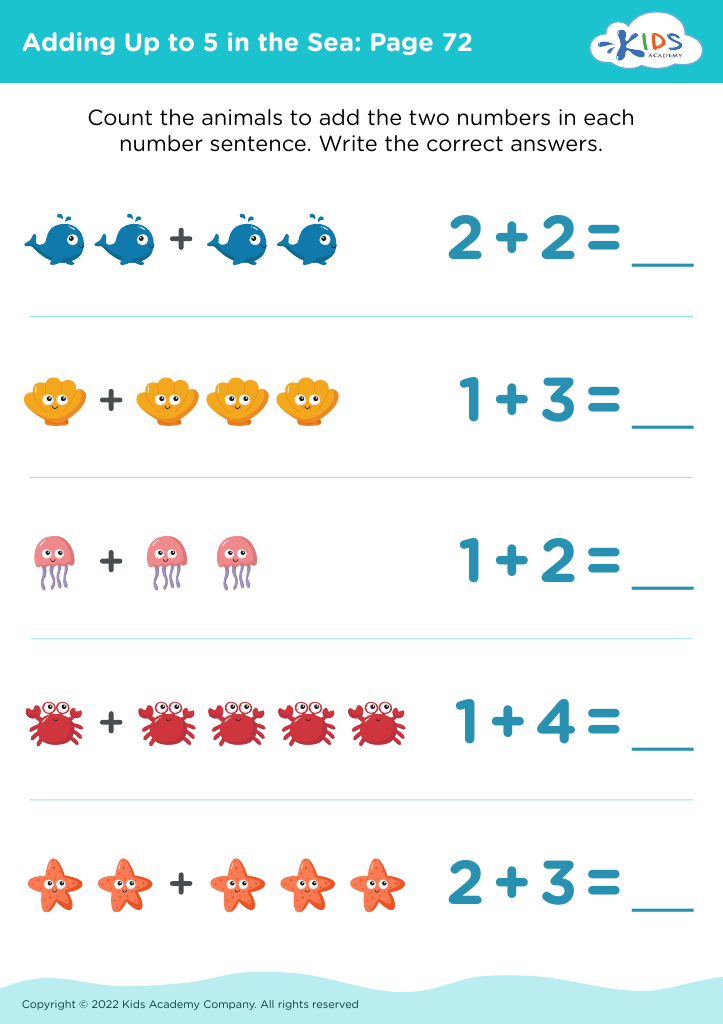
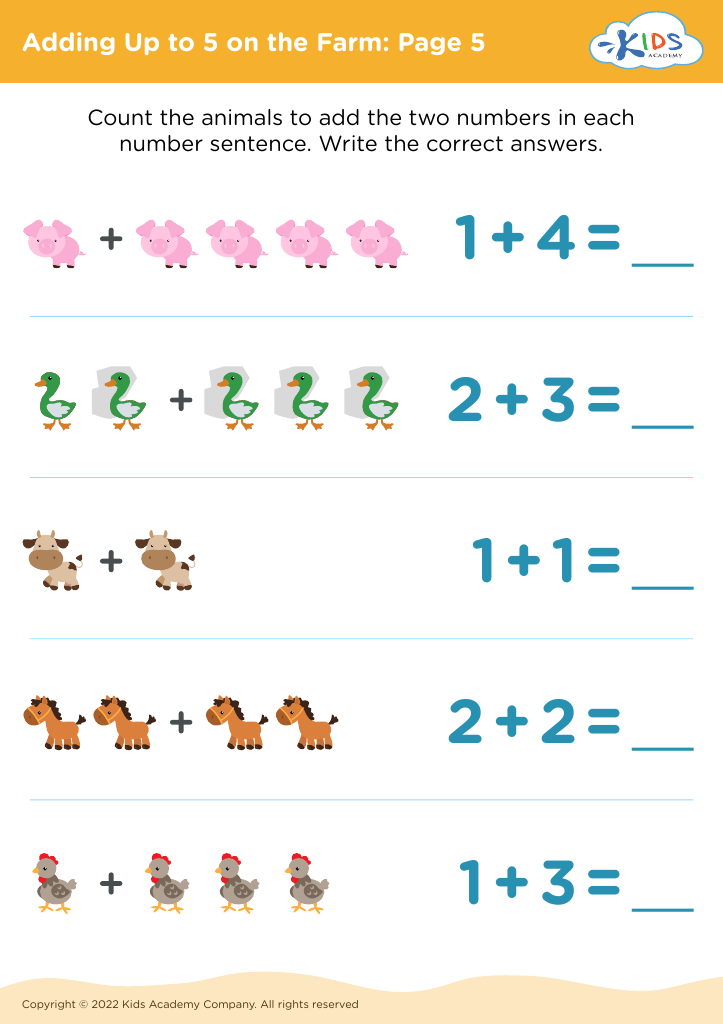
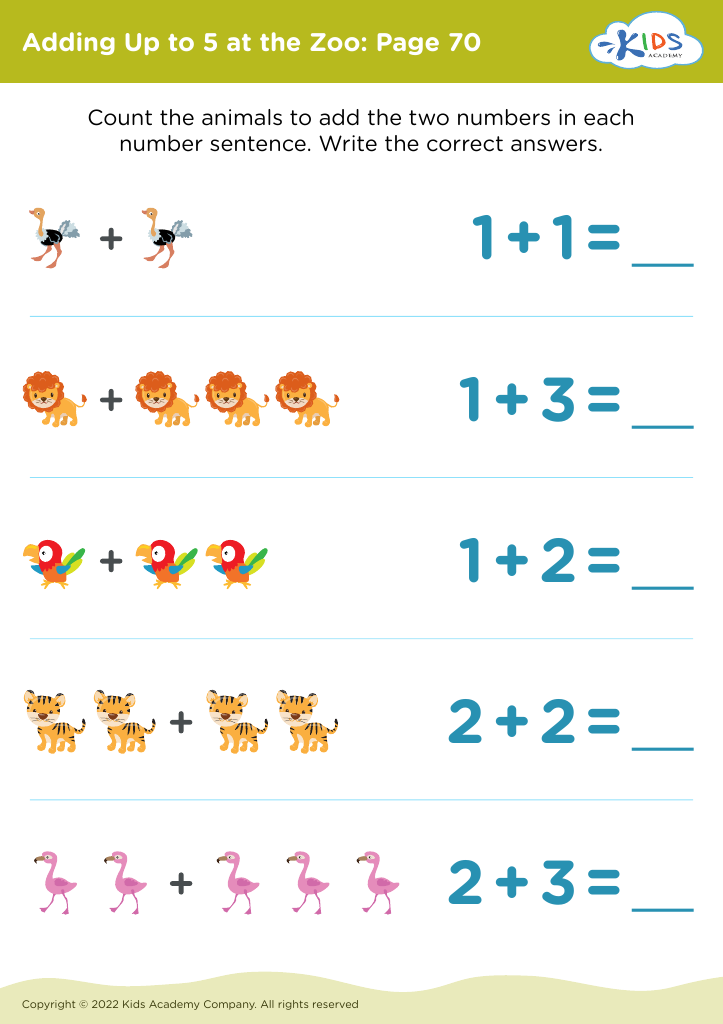
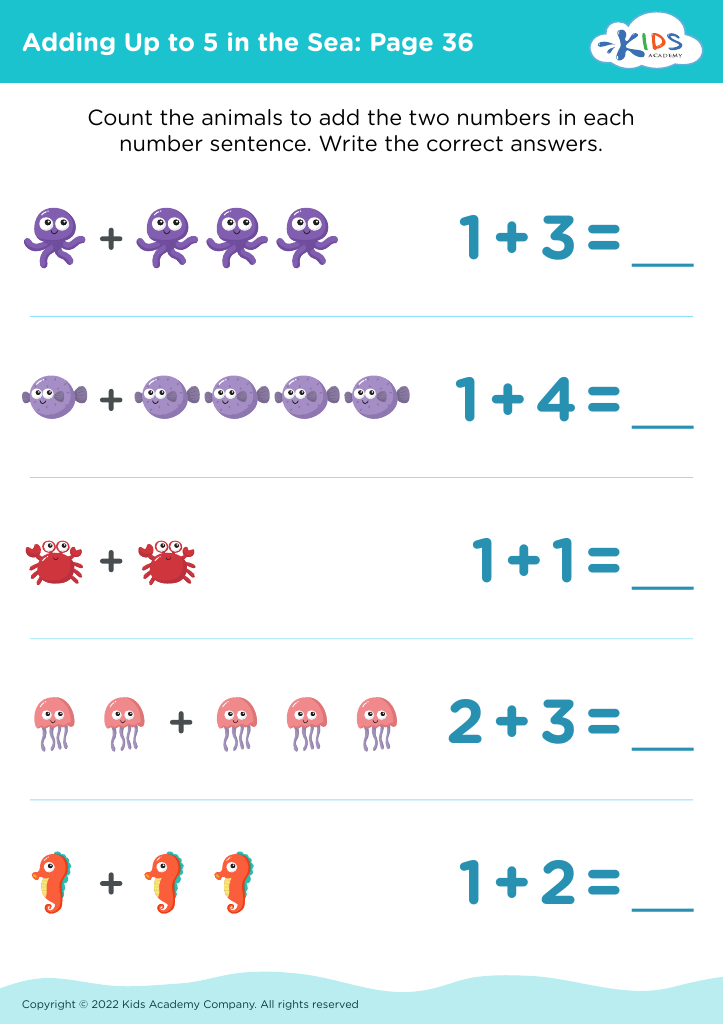
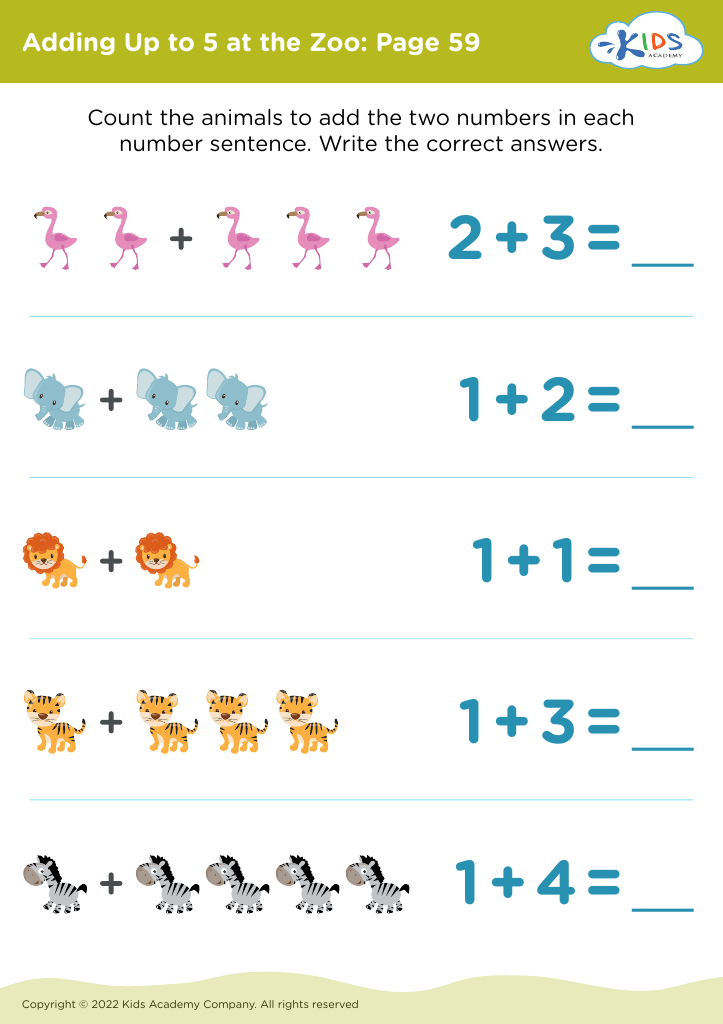
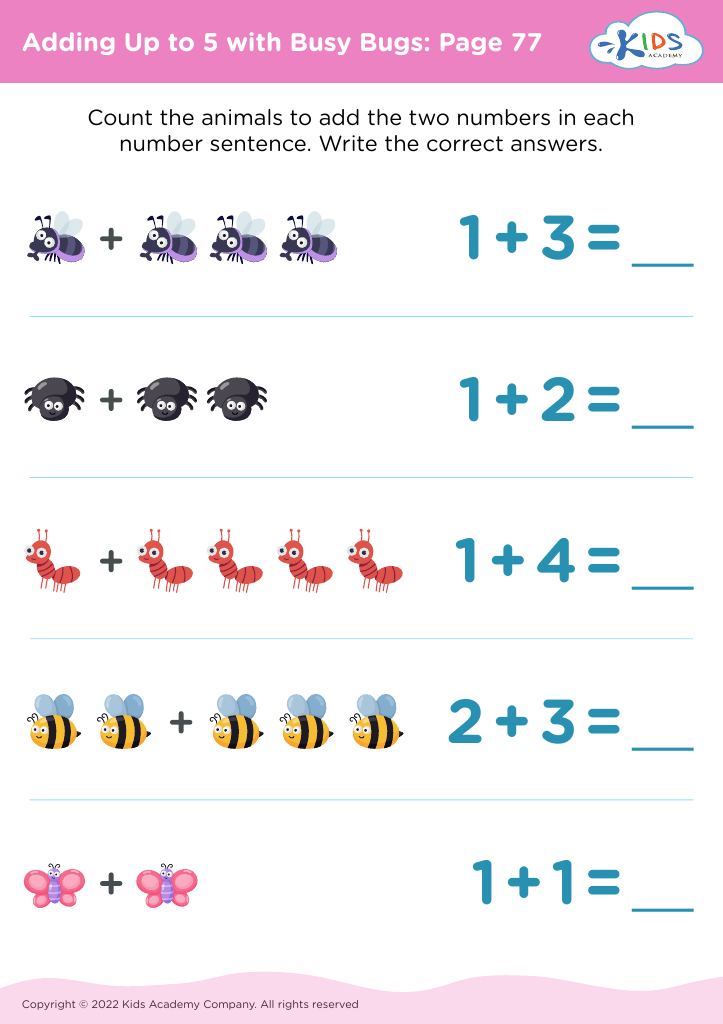
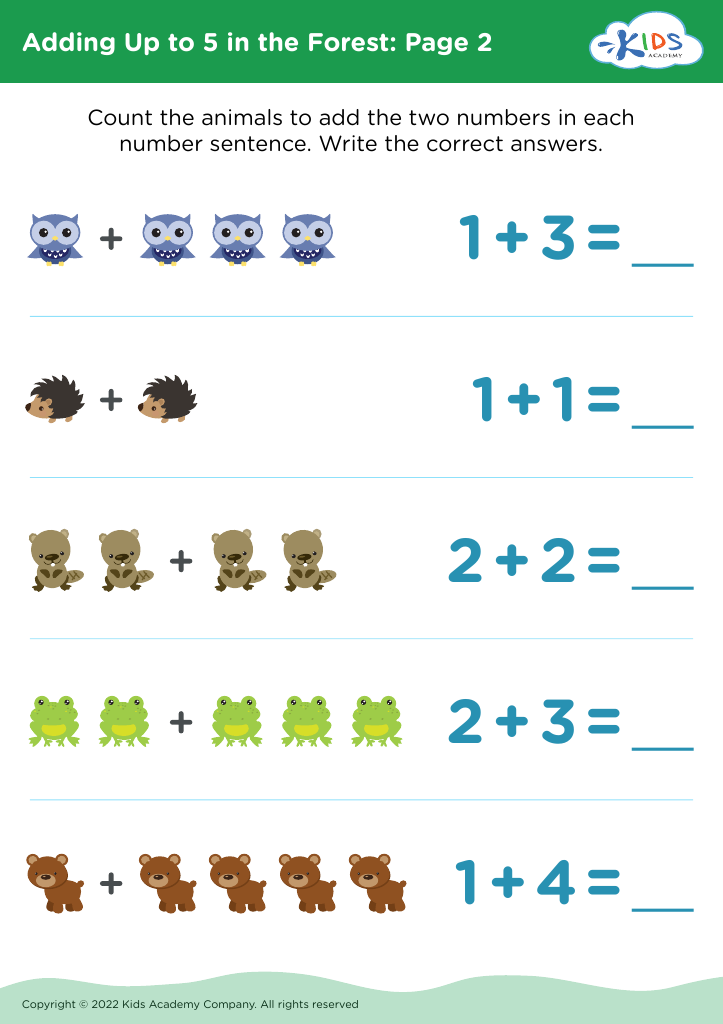
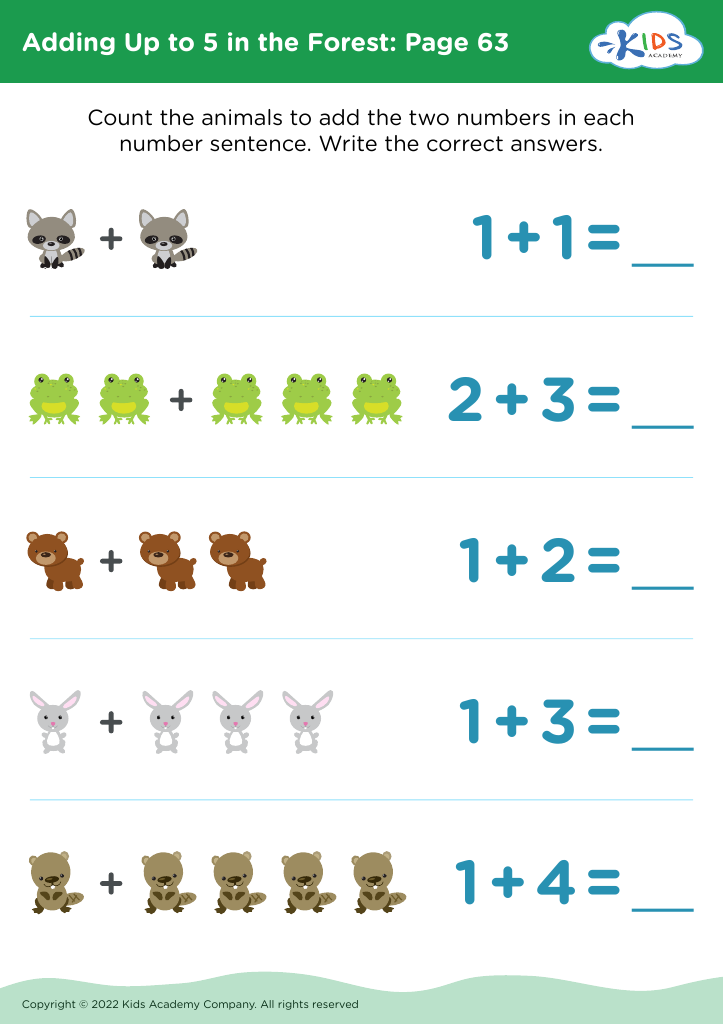
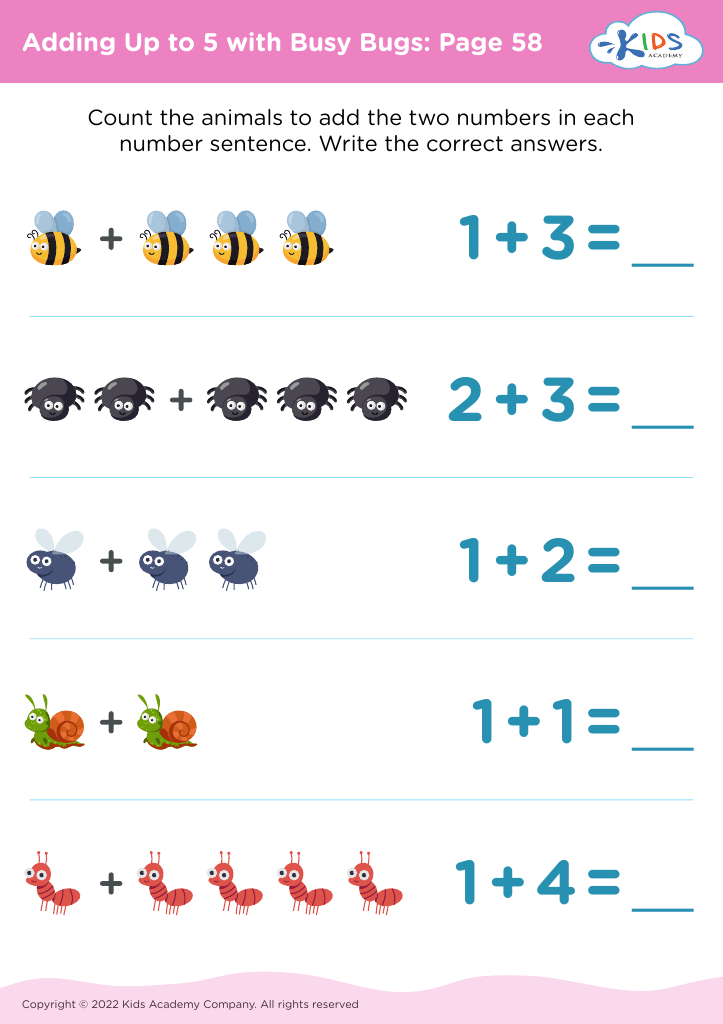
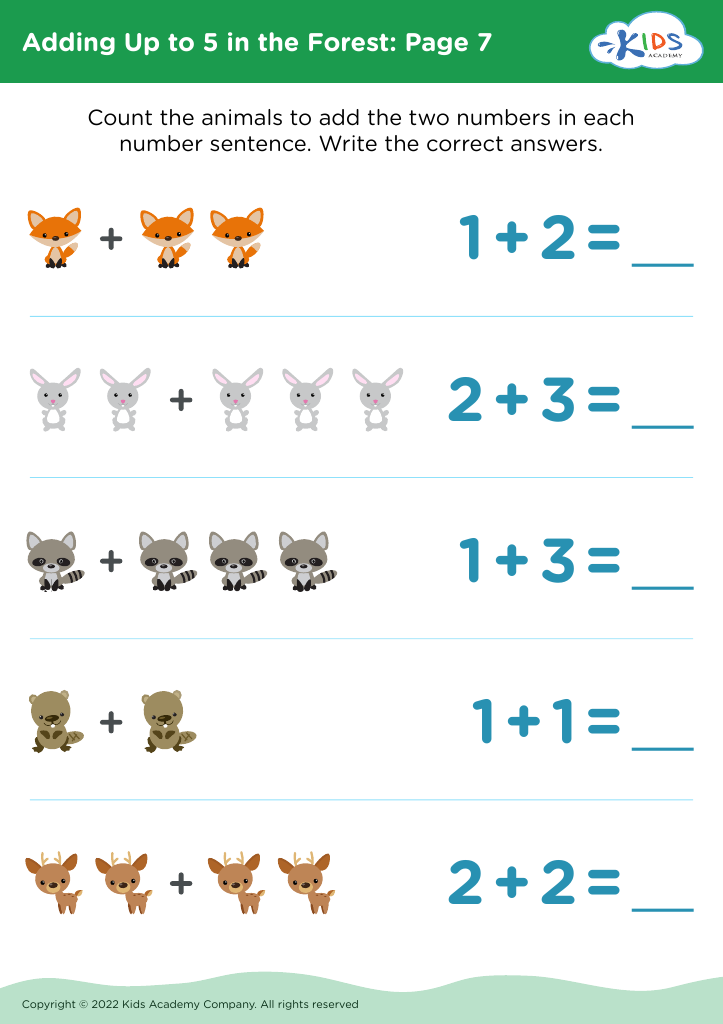
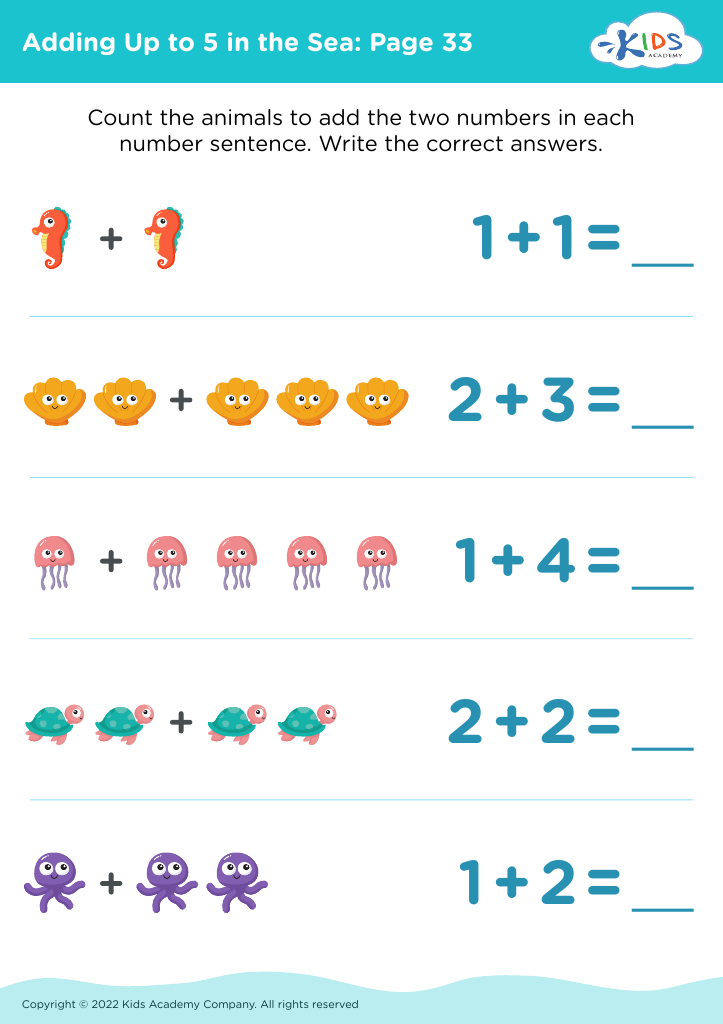
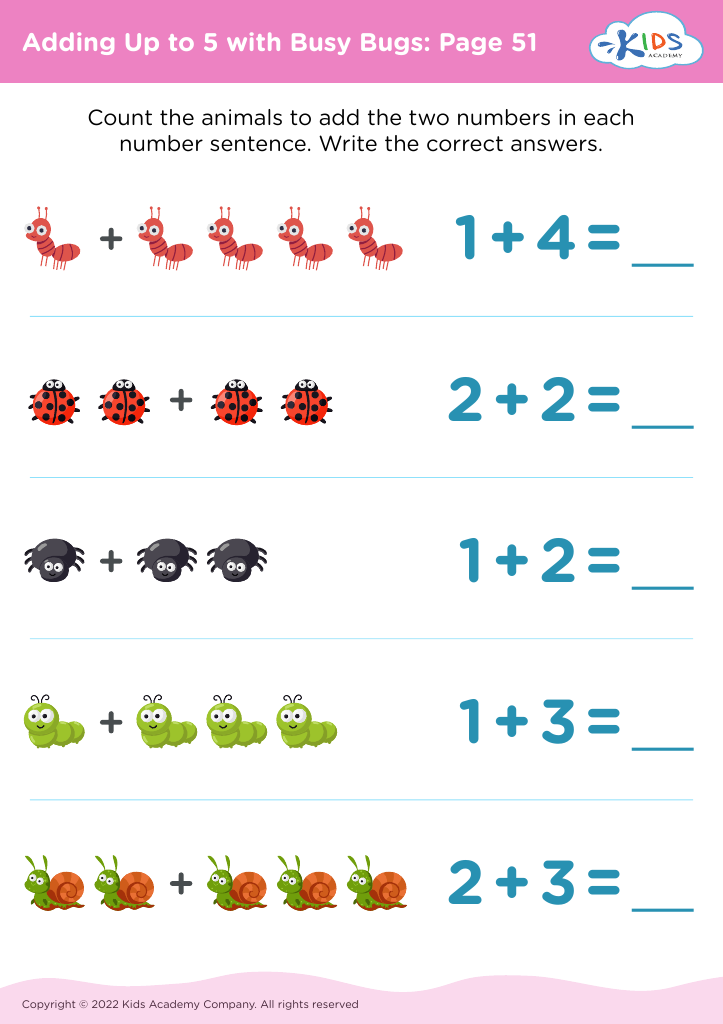
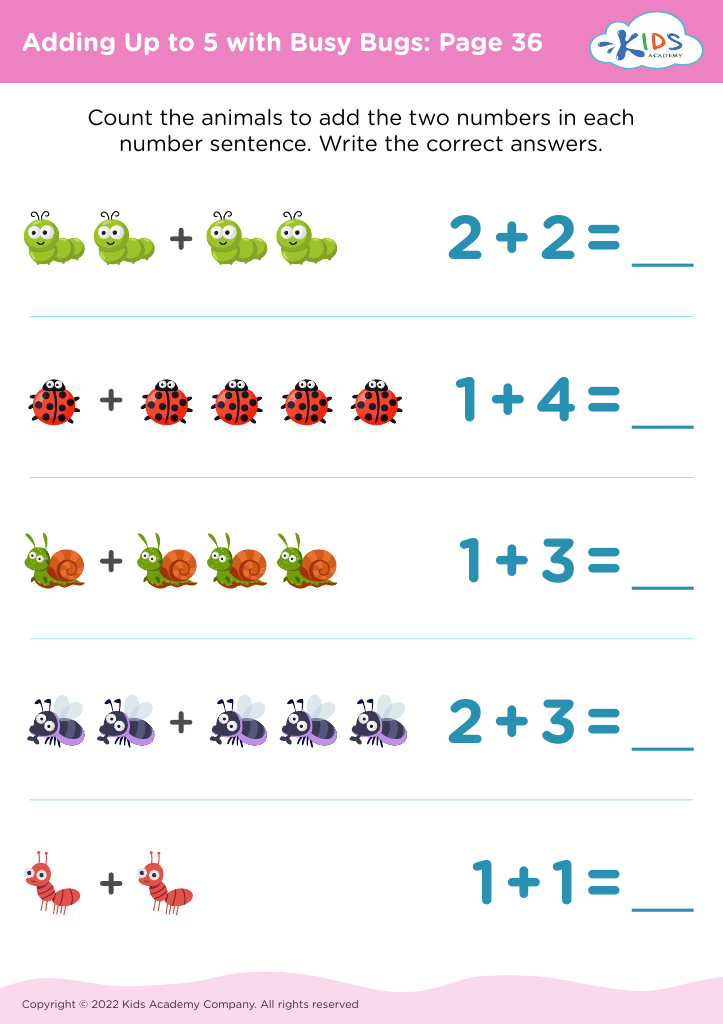
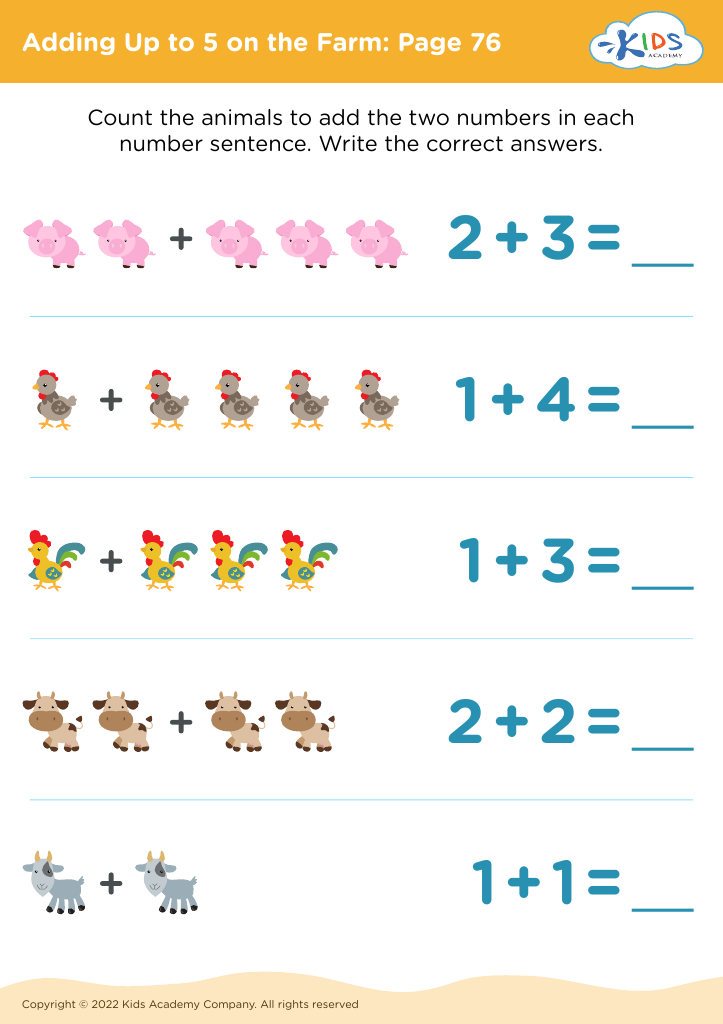
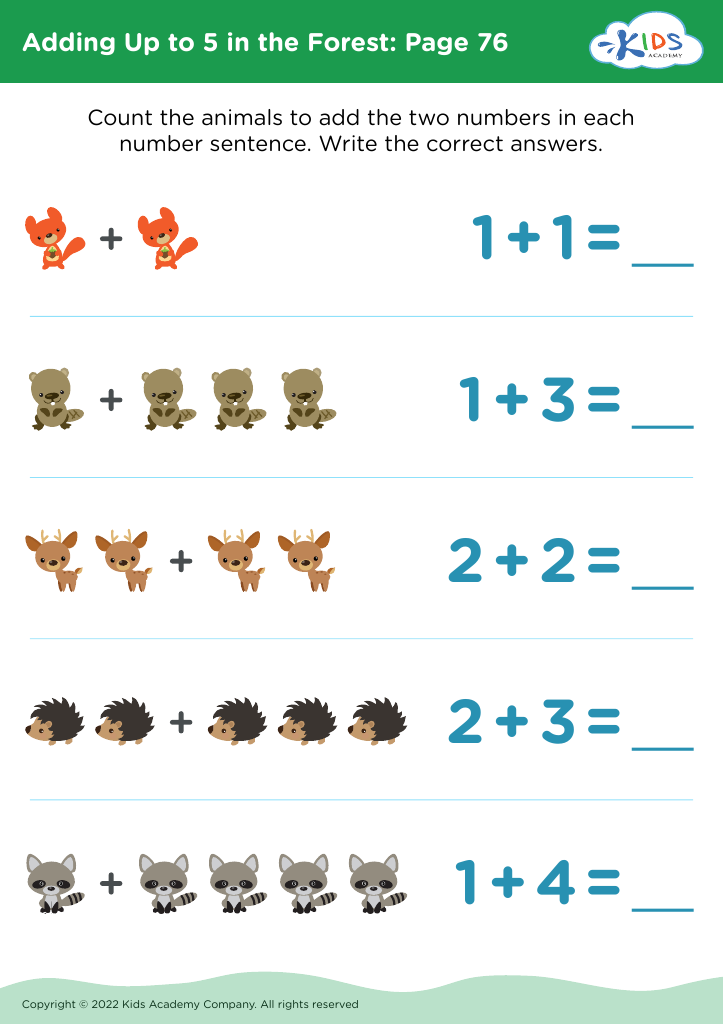
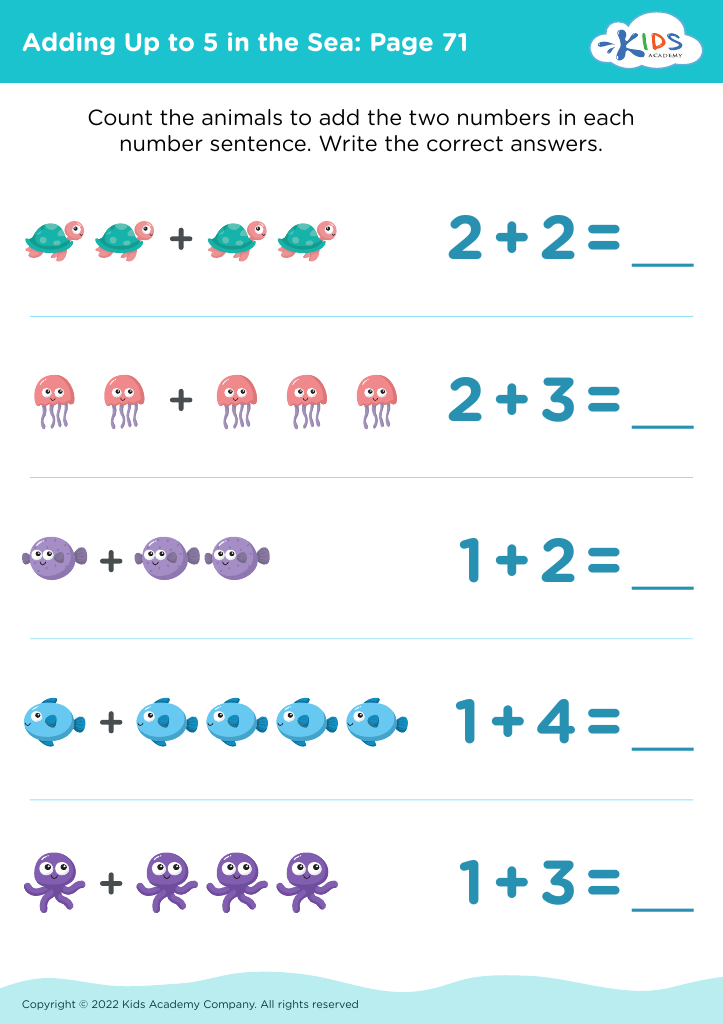
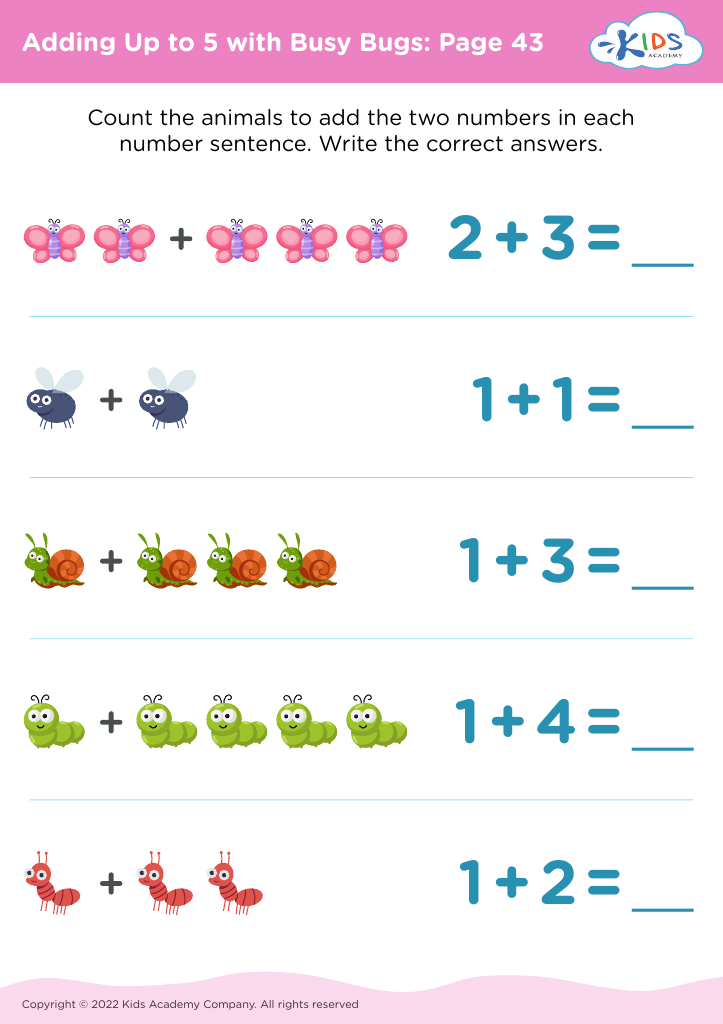
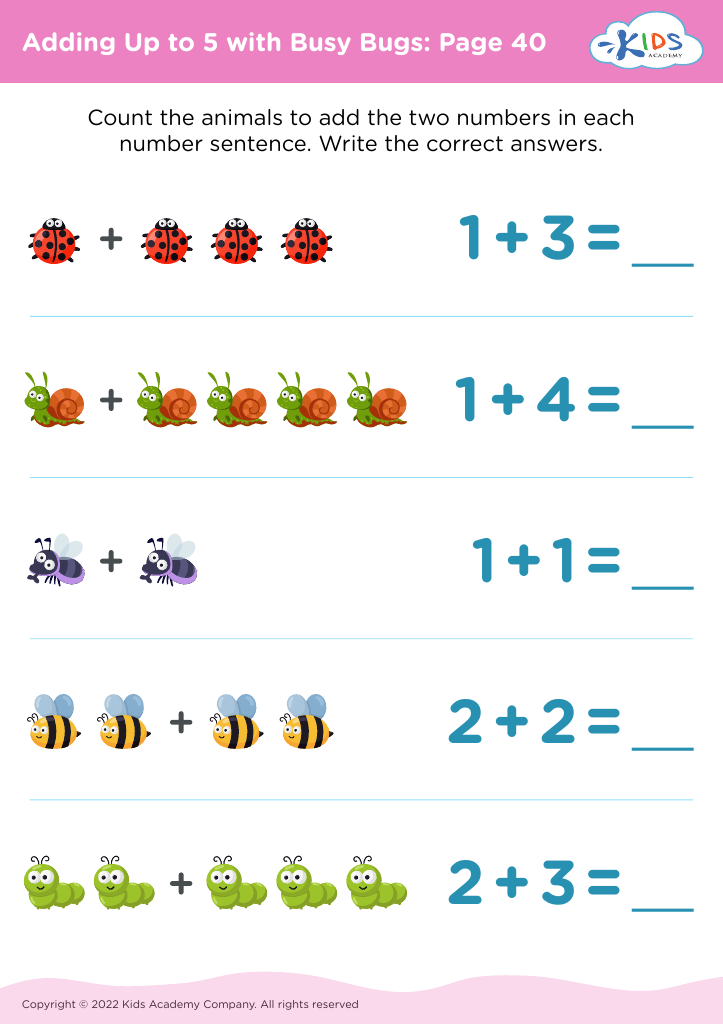
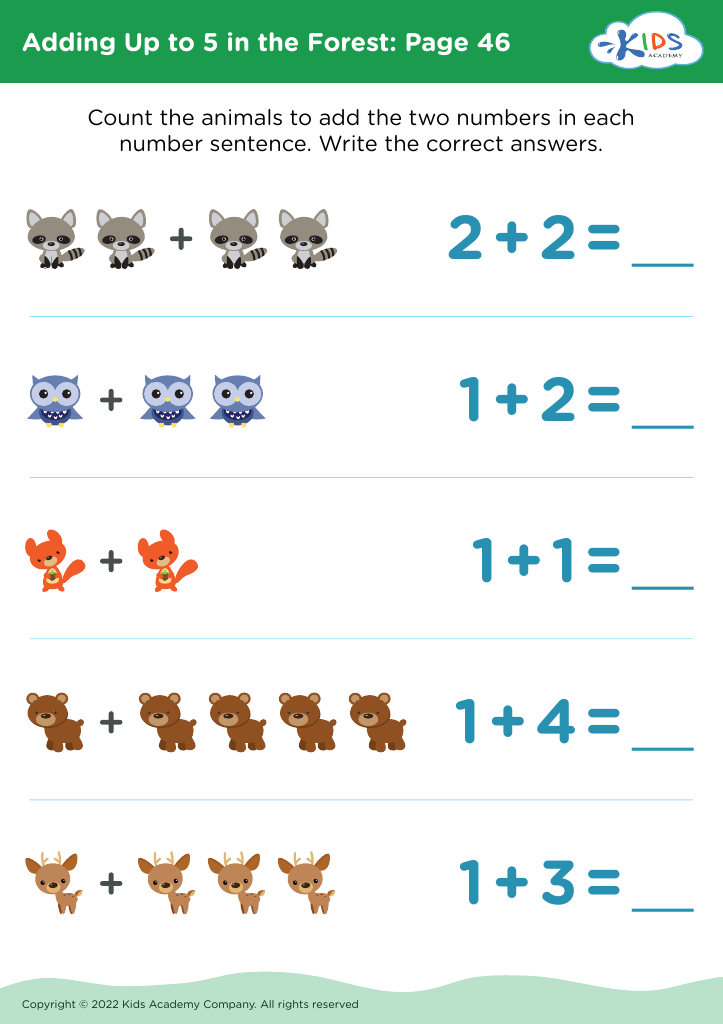
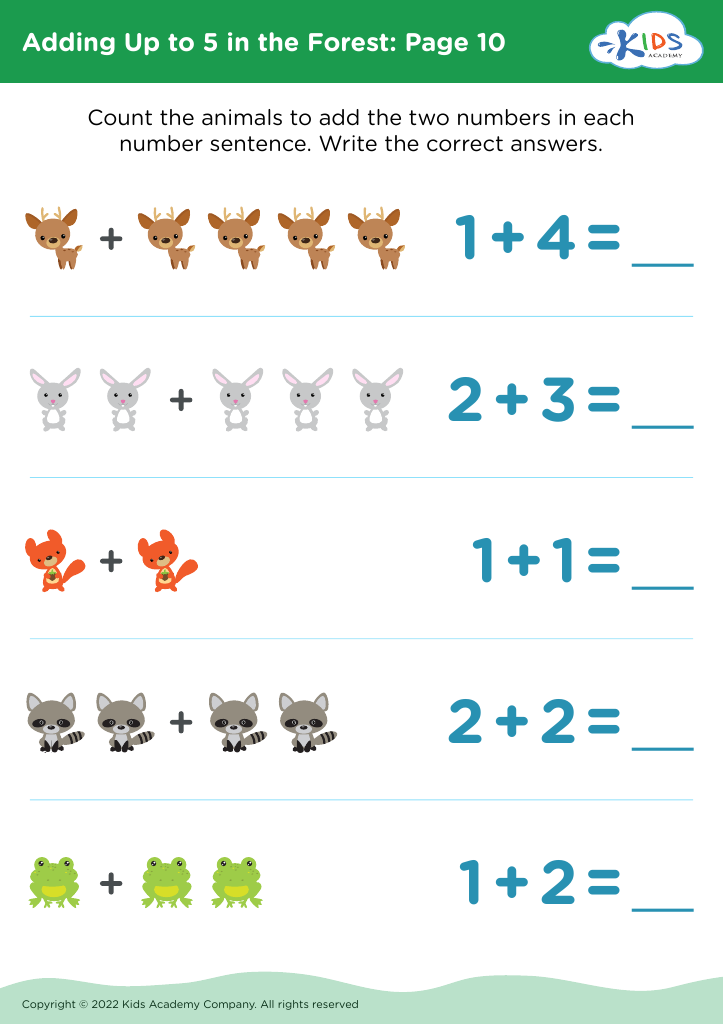
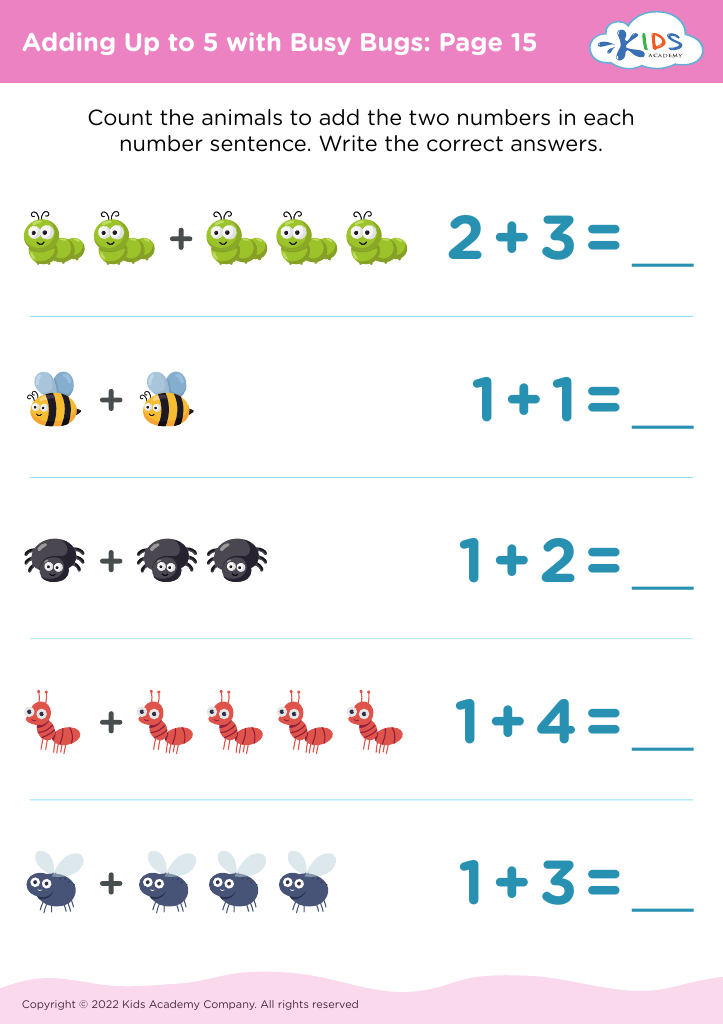







.jpg)








